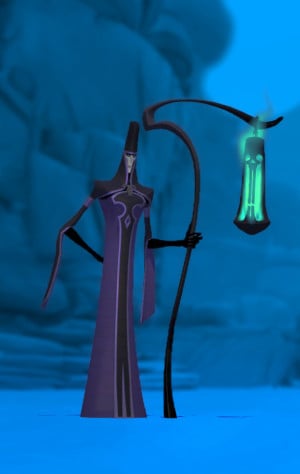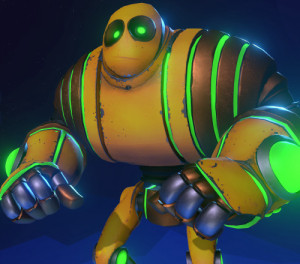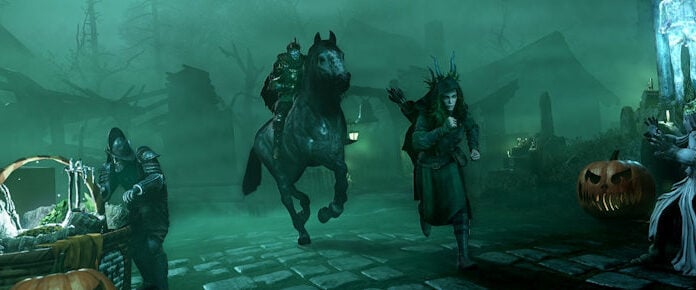
I recently went on a rant about gaming, but it wasn’t directed at gaming. It was in defense of gaming. I am so weary of our pastime getting slammed as wrong, evil, or equated as an automatic addiction. Games are bad! Gamers are bad! It is what the mainstream media portrays, it’s what politicians portray, and it is what those with an agenda want John Q. Public to believe. I have been seeing this media-fueled fallacy more and more often coming from good people and it drives me bonkers.
So after a slew of comments of that sort happened in a very diverse group I am a part of, I felt I needed to educate some of these otherwise wonderful folks about the topic. While I have no desire to tell folks what they can or can’t do in their own home or when raising their family, I really wish people would stop vilifying video games and gamers. I feel it is important to combat misinformation that leads to misjudgment.
It struck me how often we as gamers need to have this conversation, so I adjusted those thoughts to compile some points we can all share share during our inevitable discussions on gaming. One key point I kept in mind: As frustrated as I was/am about the misjudging, and as much as I want to beat that misconception down into dust, I don’t want to attack the people. I get that it is hard not to feel defensive when gaming is attacked. I mean, this is my life — my entertainment, my job, and often my family time. But getting defensive and making others defensive doesn’t help, so I am going into this with a focus on enlightening rather than arguing. And I am happy to say that so far, decent conversation has come out of it. I am keeping these talking points on hand to assist next time I am faced with these misconceptions! Please feel free to add your own thoughts and experiences to the list.
 1. There is more to gaming than shooters
1. There is more to gaming than shooters
Before delving into other points, I realized I had to actually define video games to my audience. Many folks not savvy in the world of video games don’t actually know what all that encompasses (even when family members play them!). In large part thanks to the media-fueled frenzy, many have this vision that video games are all violent first-person shooters with players dashing around blowing others’ virtual heads off. While yes, there are shooters (and they are not inherently bad, either!), there is a multitude of other games out there. There is more to gaming than Call of Duty. This point may seem pretty obvious to us as MMO fans, but you might be surprised how many in the general population don’t realize this.
What kinds of games are out there? Give folks an idea. We’ve got a handy link to list off a few hundred examples in our coverage alone. There are building games, historical games, puzzle games, suspense games, social games, Facebook games (I can’t believe how many didn’t count this as gaming), and cooperative games. Games come in all sorts of flavors from realistic to anime, fantasy to sci-fi, pirate to ninja. Games can be cooperative or competitive. They can be geared toward kids or very adult-themed. Games can be massively multiplayer or single-player. Video games have spanned from Pong to Atari to to consoles to PCs. There’s a chance those who are judgmental toward gamers have actually played a game themselves.
 2. Gaming does not equal addiction
2. Gaming does not equal addiction
Having a degree in psychology and having worked in counseling and social work for many years, I find that the comment that gaming is an automatic addiction bothers me the most. I have worked with serious addictions; equating gaming to addiction makes light of a severe affliction. Just doing something does not make it an addiction. Doing it often does not even make it an addiction. Would you say knitting often is automatically an addiction? What about watching sports? Netflix?
An addiction is defined by the American Psychiatric Association as an intense focus on using a certain substance(s) to the point that it takes over their life. We know that addictive behaviors go farther than just substances and include other behaviors. The American Society of Addiction Medicine emphasizes that is addiction is reflected in an individual pathologically pursuing reward and/or relief by substance use and other behaviors. It is an impairment in behavior control and a craving; addicts simply cannot abstain, such that everyday life activities and interpersonal relationships are adversely affected.
Can there be folks who are addicted to gaming? Of course. We do not discount that. But addictions can be everywhere: I’ve worked with people who are addicted to other activities to the point that it was interfering with and destroying their lives! Even good things that take over your life to the exclusion of all else becomes bad. For the most part, however, gaming is simply another form of entertainment. Which leads us to…
3. Gaming is entertainment
I admit I didn’t play many video games growing up (I still have my Atari 2600, though, and I totally miss my stolen Super Pong console), likely because we were too poor. I was way more into books and sports — and I still am into those, by the way. I got into tabletop gaming in college (no, D&D is not evil either!), and got into computer games after I left school and had a family. I’ve played games with my kids as they have grown up. When folks I meet in person voice the gaming misconception, I stop and ask them whether they think my family is evil – whether we are maladjusted miscreants doomed to be failures in life. Folks seem genuinely surprised when I point out how involved in gaming we are. Sure we have our issues, but we try to be decent people, serving and loving others, and supporting our church and community. We just happen to also play games in our spare time. Lots of others choose this recreation as well, including teachers, firefighters, doctors, civil servants, tradesmen, and pretty much any other occupation you can think of. I’ve even gamed with a number of retirees!
The point is that gaming is just another form of entertainment. In my house it is one of our preferred forms. And there are innumerable amazing, wonderful folks out there who pick it as well. Gaming is right in the ranks of watching movies, Pinterest, crossword puzzles, watching sports, binging Netflix, reading, playing cards or board games, building models, knitting or crocheting, making crafts, playing bingo… and so on and so forth. The list is pretty extensive; there are many forms of entertainment, and gaming is just one of them. Why should those pastimes be OK and gaming not be? Some people want to spend their money at the movies, others want to buy a game. Some do both. And that’s all great!
And guess what? Gaming isn’t just mindless entertainment, either. It can be very beneficial.
 4. Games build skills
4. Games build skills
Some people mistakenly think that gaming is a complete waste of time and brain matter. While any activity can be a waste of time if it should be spent elsewhere (excessive Facebook, anyone?), gaming has many positive qualities. In fact, it builds skills that are applicable in everyday life. Gaming is even used therapeutically.
What skills can gaming develop? Here are a few examples that are not just random anecdotes but actual experiences I have had through my work in psychology, social work, and gaming:
- Many games can foster reading through the quest lines.
- Gaming can encourage creativity through roleplay, art, and writing.
- Console games especially help build hand-eye coordination.
- Puzzle games help increase critical thinking and problem-solving skills.
- MMOs especially can lead to learning social cues.
- Multiplayer games offer an arena to practice behaviors like compromise and cooperation.
- Folks can also develop leadership and organizational skills.
Therapeutically, games can be very beneficial, both physically (such as helping recover after a stroke) or emotionally. As a 2010 article published by the American Psychological Association noted,
It can help young patients especially become more cooperative and enthusiastic about psychotherapy. Recent experience suggests that video games may facilitate therapeutic relationships, complement the psychological assessment of youth by evaluating cognitive skills, and elaborate and clarify conflicts during the therapy process.
Additionally, games can help those with grief. I recently spoke with a mom who was concerned of addiction when her newly adult son just started spending so much time in a video game. It turns out there was major upheaval in his life, and his delve into the game was just a coping mechanism. Does this make it an addiction? No. Gaming can offer a temporary escape (just like books or movies can) to give people time to process feelings. Games, however, have the added benefit of giving players more control of their virtual surroundings and providing the feeling of being in charge of your destiny, things that can be missing in the real world.
As mentioned above, gaming also offers opportunities for those who have difficulty in social situations, such as those with anxiety, autism, or other disabilities. It gives them a community to be a part of.
 5. Gaming fosters community
5. Gaming fosters community
One stereotype we all have heard is that gamers are loners, avoiding life and hiding away in a basement — with our without Cheetos dust smeared on our clothes. I am the first to admit that there can be bad in games, especially some toxicity and bad folks. But you can find bad people and toxicity anywhere. I had to deal with plenty in-person working in social work — and that also comes from co-workers! You can’t blame the medium for the bad apples involved with it. Unfortunately, this is all that gets splashed on the screen through media.
Many people seem to not realize that gaming can be a cure for isolation by fostering community. And this community can seriously rock. Besides being a place folks can learn social skills, it is also a place giving folks a social connection they might not otherwise get. This includes those who are disabled, have anxiety issues, are acutely shy or introverted, etc. A gaming community was actually a social lifesaver when I was newly moved across the US and became seriously ill and housebound; I had little interaction outside of my family except for one game community for a year. I could never have coped with the isolation, so when I say it was a lifesaver, I felt it truly was.
Gaming communities have been lifesavers in other very literal ways across the world. We are talking about players taking action when fellow gamers are in need. From multiple cases of gamers stepping in to help when gamers are suicidal to reporting a fire to alerting authorities to home invasions to kids recognizing the dangers of grenades, gamers are saving the lives of other gamers. I’ve been there when people jump to the aid of those struggling, grieving, or ill and in need of assistance. This community rallies around members, giving support in many ways, including emotional, physical, and financial. Fellow gamers come forward and return lost money. They build memorials in games to honor those who are lost as well as raise money for those in need.
 6. Gamers engage in charity work
6. Gamers engage in charity work
The stigma that gamers are bad just needs to be wiped off the face of this planet. Gamers are just regular people. No, scratch that: They can be totally awesome amazing people! Mainstream media seems only interested in sharing news about anything bad that happens related to gaming, like swatting deaths. But video game players can be such a force for good. I am not going to recite every case here, but here are just a few highlights.
I’ve seen huge blocks of gamers do amazing charity work and service. There are regular streaming events on Twitch done raising hundreds of thousands for many charities, often focused on children. Gamers and studios band together to raise money and gather tons of supplies for relief for natural disasters. There are conservation efforts for our military history. Communities come together to donate blood. Multiple game studios launch various charity initiatives. GoFundMes crop up often and meet goals to help gamers and families in need. On a micro level and a macro one, gaming and gamers are making a positive difference in the world. Have people heard about all of it? Probably not, since it goes under the radar and isn’t reported by mainstream media. No, that would ruin the gaming is evil image. But it is out there, and happening. If you want a large selection of these feel good stories to share with others and show, here you go!
 Everyone has opinions, and The Soapbox is how we indulge ours. Join the Massively OP writers as we take turns atop our very own soapbox to deliver unfettered editorials a bit outside our normal purviews (and not necessarily shared across the staff). Think we’re spot on — or out of our minds? Let us know in the comments!
Everyone has opinions, and The Soapbox is how we indulge ours. Join the Massively OP writers as we take turns atop our very own soapbox to deliver unfettered editorials a bit outside our normal purviews (and not necessarily shared across the staff). Think we’re spot on — or out of our minds? Let us know in the comments!














